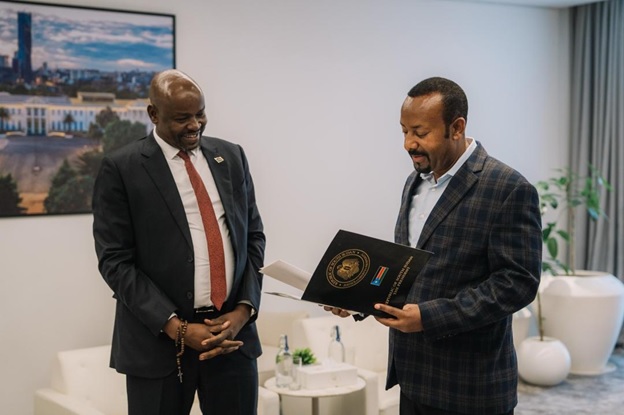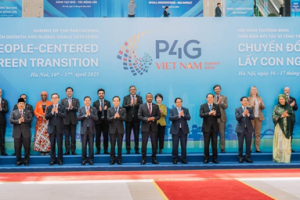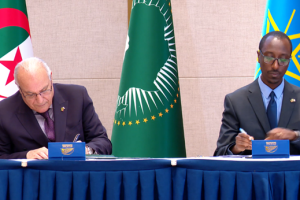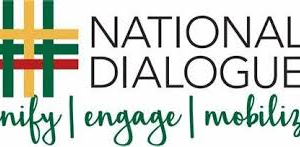
East Africa and the Horn of Africa are grappling with significant challenges that impede sustainable development. Political instability, ongoing conflicts, and civil wars disrupt governance and social cohesion.
Additionally, the region is frequently affected by natural disasters, which exacerbate food insecurity and displace communities. These frequently issues create a complex landscape where efforts to achieve lasting development are severely hindered.
Addressing these challenges, Ethiopia has been efforts to promoting regional stability and peace in the Horn of Africa and the surrounding areas. As one of Africa’s oldest nations and a significant contributor to the African Union, headquartered in Addis Ababa, the country has consistently demonstrated its dedication to continental peace initiatives.
Its geographic position, combined with its strong military capabilities, makes Ethiopia an essential ally in security efforts across the region. The country actively participates in various initiatives aimed at enhancing security within the region, consistently serving as a mediator and facilitator for peace talks among conflicting parties.
For instance, Ethiopia’s influence is its involvement in South Sudan, where it has successfully brought armed factions together for dialogue, reinforcing peace negotiations.
The country it committed to peace and security aside from diplomacy, as evidenced by its troop deployments in various peacekeeping missions. Ethiopian forces have played a crucial role in maintaining stability, protecting civilians, and creating secure environments for communities affected by conflict to rebuild their lives.
As part of regional and international peace efforts under organizations like the African Union and the United Nations, Ethiopia has demonstrated its strong commitment to peace initiatives. Ethiopia believes that fostering peace and mutual support leads to positive outcomes, encouraging development throughout the East Africa as well the horn region. The nation remains committed to sustaining peace and collective progress, both domestically and regionally.
This commitment was reaffirmed by Prime Minister Abiy Ahmed, who responded to a recent message from South Sudan’s President Salva Kiir Mayardit, emphasizing Ethiopia’s dedication to supporting the people of South Sudan.
Through increased engagement in regional peace, security, and development issues, Ethiopia continues to play a vital role in promoting sustainable peace and stability in the Horn of Africa, solidifying its position as a key player in advancing lasting prosperity in the region.
Ethiopia not only to commitment on Sudan disputes but also Ethiopia strengthened its diplomatic initiative with Somalia that aimed at combating the escalating threat of terrorism posed by the militant group Al-Shabaab.
This collaboration not only signifies a commitment to regional stability but also represents a unified stance against extremism that has plagued both nations for years. The recent relationship between Ethiopia and Somalia has been to ease the complex periods of tension in both country and steadfast their cooperation in the region peace development.
However, the rising threat of Al-Shabaab, which has been responsible for numerous attacks in the region countries, has necessitated a reevaluation of their diplomatic strategies. With Al-Shabaab’s activities extending beyond Somalia, affecting Ethiopia and neighboring countries, the urgency to forge a collaborative approach has never been more critical.
Ethiopia, which shared a border with Somalia, has frequently engaged in military operations within Somali territory to combat Al-Shabaab and other armed groups. These operations, while aimed at curbing the insurgency, have sometimes led to diplomatic strains. The current push for enhanced bilateral diplomacy reflects a mutual understanding that a coordinated effort is essential for effective counter terrorism measures.
Furthermore, both nations are not alone in their fight against Al-Shabaab. They are also working closely with the African Union Support and Stabilization Mission in Somalia (AUSSOM), a vital partner in the region’s security landscape. AUSSOM’s involvement underscores the collective responsibility of regional and continental entities to address terrorism.
Recent statements from AUSSOM highlighted the ongoing threats posed by Al-Shabaab. Just days ago, militants fired mortar bombs into the AUSSOM Base Camp in Mogadishu. Fortunately, there were no casualties or significant damage, and the situation was swiftly contained. Such incidents serve as stark reminders of the persistent dangers that both nations face and the importance of their cooperative efforts.
Moreover, AUSSOM has reiterated its commitment to supporting the Federal Government of Somalia in its fight against terrorism, emphasizing that assaults like the recent mortar attack will not frighten its mission. This commitment is crucial as the African Union seeks to stabilize Somalia, enabling it to address internal challenges while simultaneously combating external threats.
The urgency of this diplomatic collaboration has been further heightened by recent actions, including an attempted assassination of Somalia’s President Hassan Sheikh Mohamud. A roadside bomb blast targeted his convoy, underscoring the perilous environment in which Somali leaders operate. Al-Shabaab claimed responsibility for this attack, further illustrating the group’s audacity and the need for a concerted response from Ethiopia, Somalia, and their allies.
Both nations are aware that terrorism not only destabilizes governments but also exacerbates humanitarian crises, leading to displacement and suffering among civilian populations. As they deepen their cooperation, they aim to create a safer environment for their citizens, which is essential for fostering development and long-term peace.
Additionally, Ethiopia has been actively enhancing its military alliances with neighboring countries like Uganda, Kenya, and other African nations. This collaboration highlights the growing recognition that ensuring regional security is a collective responsibility, especially in a continent facing ongoing threats such as terrorism, armed conflicts, and cross border instability. Ethiopia’s strategic partnerships reflect a broader commitment to fostering peace, stability, and mutual development across the region.
Furthermore, The United Nations, the African Union, and other international partners have expressed support for the collaborative efforts of Ethiopia and neighboring countries. This backing is essential, as it not only provides resources and training but also encourages a more robust response to terrorism that includes intelligence sharing and joint military operations.
The journey toward a peaceful and secure East Africa is fraught with challenges, but the recent diplomatic initiatives between Ethiopia and Somalia and other regional nations represent a hopeful step forward. By fostering a united front against extremism, both nations can work toward reducing violence and promoting stability in the region.
The commitment to bilateral and multilateral diplomacy is recognition that addressing terrorism requires more than just military action; it necessitates a holistic approach that includes economic development, community engagement, and the establishment of effective governance structures.
BY FIKADU BELAY
THE ETHIOPIAN HERALD THURSDAY 10 APRIL 2025





